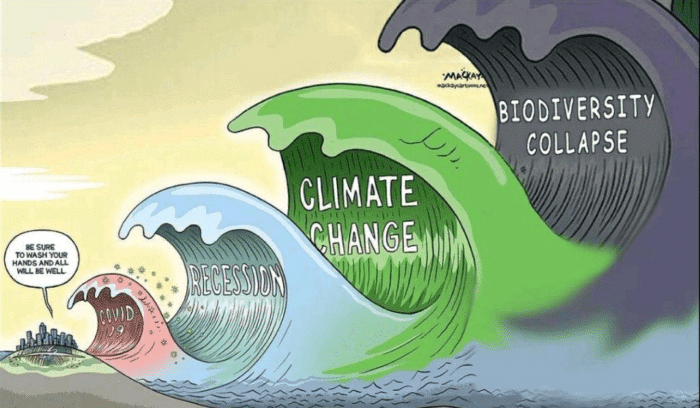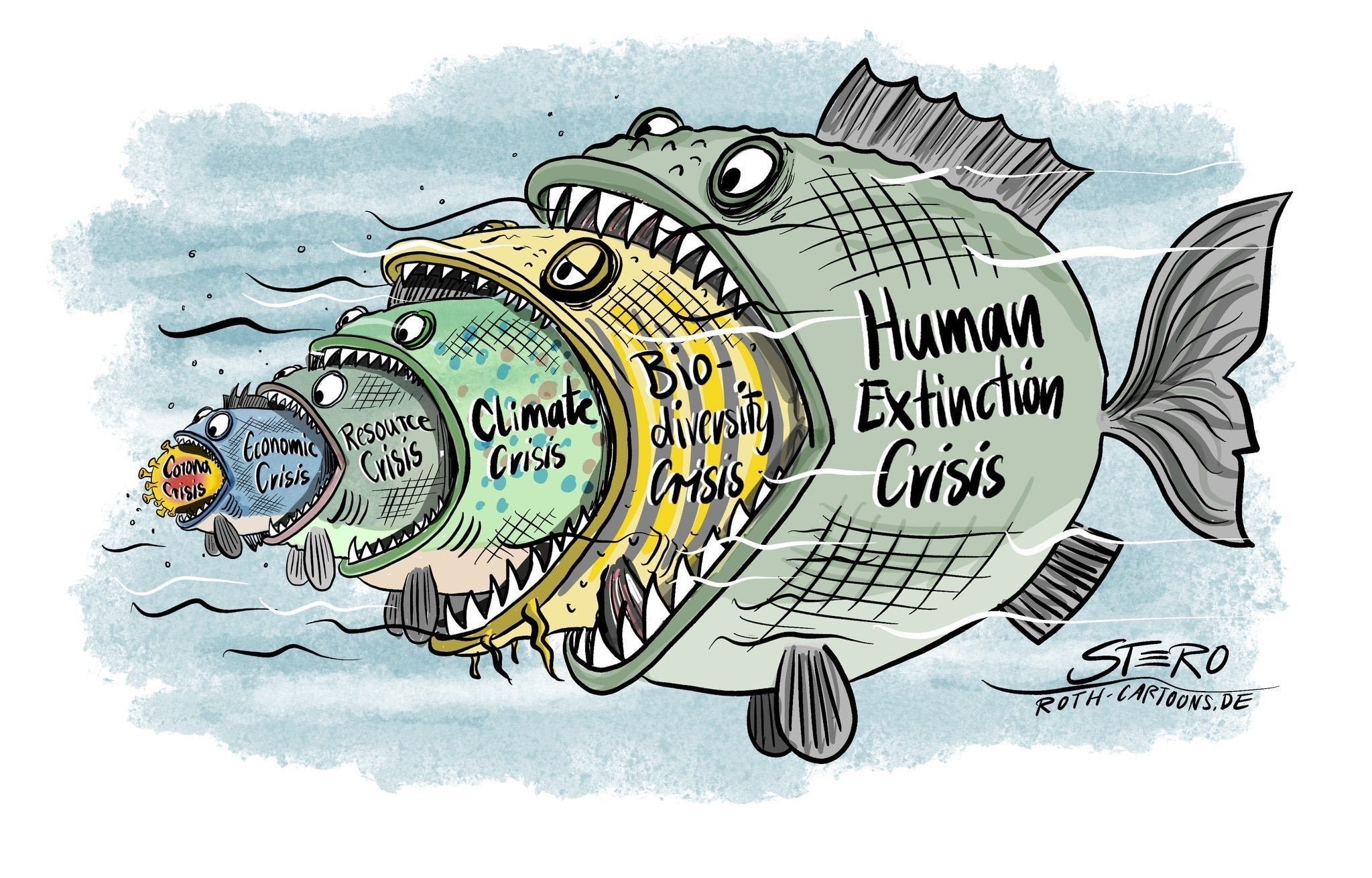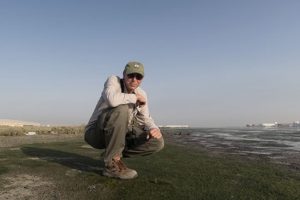Blog
International Biodiversity Consultants – one year on…
Posted 23rd September 2020
International Biodiversity Consultants Ltd (IBC) recently celebrated its first birthday on the 12 September 2020! Yes, anniversaries are just as important for a limited company as for any other entity! For IBC, it’s certainly been an interesting start for a business and an interesting year in general! Who could have foreseen a global pandemic last September? Who would have thought that huge raging forest fires in Australia and then in the US, would drive global warming further up the political scale? And then lurking in the background, an even bigger issue with the biodiversity crisis and a plea in September 2020 to halt the extinction crisis by Sir David Attenborough.

Figure 1. Waves of crises are building!
On a more mundane level, IBC’s year kicked off with a lot of business development, setting up a new limited company has its responsibilities. Limited companies in the UK have a status and identity akin to a person, they have a “birth certificate” of kinds, their own finances and bank accounts. Online identity also solidifies a “personality” with the development of websites and social media accounts. It takes energy and input to bring all this about and at the same time you need to consider how to make a turnover to pay for it all. For our Directors, Philip and Tanja Rogers, the year was certainly turned upside down. No sooner had the business been launched, they were then met with a big decision to move across to the other side of the world. Philip was offered a secondment with an environmental consultant, this posed a really difficult decision, do the Directors continue to push with a new business and endure some hardship to get it off the ground, or do they try to make themselves more financially stable first. Common sense endured and they are temporarily based in Jakarta, Indonesia.
IBC though is not completely dormant, and it continues to build its presence and potential for the future. The year also brought the potential to work with others and while it came close to establishing new ties, unfortunately these have not come about yet. IBC are certainly keenly interested to welcome and hear from potential new collaborators, mentors, possible Directors and others to develop close supportive relationships. With help from some friends, IBC were able to develop a clearer mission for the company. This is an exciting part of our corporate journey with a difference, whereby we seek to meet our responsibilities, but also to put more back in rather than simply extracting value. It cannot always be about money, and today businesses need to be more proactive and diligent about what and how they contribute towards a wider society and the natural world.
Extinction crisis
IBC’s first year also occurred in the UN 2020 Year of Biodiversity which is building towards the UN Summit on Biodiversity starting on 30 September 2020. However, its been anything but a year of celebrations. A decade ago, the world agreed 20 Biodiversity Targets (the Aichi Biodiversity Targets) (1) but has spectacularly failed to meet any single one of them.
2020 also saw the Intergovernmental Science-Policy Platform on Biodiversity and Ecosystem Services (IPBES) issue its report stating that 1 million species could be at risk of extinction (2). Human society is left with a stark choice, continue business as usual or be prepared to change for a better future for ourselves as a species highly dependent upon the ecosystems, habitats and species around us. If we don’t, the consequences for our species could be serious too.

Figure 2. Extinction crisis!
Finally, IBC’s anniversary year ended nearly to the day with Sir David Attenborough’s plea on Sunday 13 September 2020 for society to address the extinction crises (3).
Upsetting and depressing though this news maybe, we do know what we must do. Our toolbox is well equipped to repair some of the damage done, but we cannot afford to wait. We know we can re-establish habitats and ecosystems, we know species conservation works (4). With focus and innovation, there is much optimism, but as a species we have to change to reduce our impact on the world around us.
A new Biodiversity Treaty?
The UN Summit on Biodiversity (5) starts this month in September. It’s another opportunity for our societies to address the challenges of biodiversity loss, degradation of the environment and work towards achieving progress towards the Sustainable Development Goals (SDGs). The Summit will provide opportunities for Heads of State and Government to seek a new global agreement framework and as such, a recovery plan to interlink with meeting the SDGs in 2030.
Nature-based Solutions – a global standard
One other positive development was also issued in the last year, the IUCN Global Standard for Nature-based Solutions (6). These are actions as the World Conservation Congress (WCC) defines as, actions to protect, sustainably manage and restore natural or modified ecosystems that address societal challenges effectively and adaptively, simultaneously providing human well-being and biodiversity benefits. The global standard now introduces a set of eight best practice principles in order to upscale NbS and ensure that what is delivered is sufficiently robust enough.
IBC have identified that upscaled solutions are required (see our blog articles: An unmanaged retreat in Java [7] and Jakarta: a mega-city faces its climate challenges [8]). Here near to Jakarta, Indonesia urgent work is needed to plant new mangrove habitats and thereby reduce rapid coastal erosion and tidal flooding to the capital. This is one example where we can improve the environment, increase resilience for coastal marine habitats and potentially improve people’s livelihoods and well-being.
The next article investigates several possible solutions for Jakarta.
- Convention on Biological Diversity (2020) The Aichi Biodiversity Targets. Accessed at: https://www.cbd.int/sp/targets/
- Intergovernmental Science-Policy Platform on Biodiversity and Ecosystem Services (2020) As Planet Burns, One Million Species in World’s Eco-System in Danger of Extinction. Accessed at: https://ipbes.net/node/36569
- BBC News (2020) Sir David Attenborough makes stark warning about species extinction. Accessed at https://www.bbc.com/news/science-environment-54118769
- Bolam, F.C, Mair, L., Angelico, M., Brooks, T.M, Burgman, M., McGowan, P. J. K & Hermes, C. et al. (2020). How many bird and mammal extinctions has recent conservation action prevented? Conservation Letters, e12762. doi: https://doi.org/10.1111/conl.12762
- UN (2020) United Nations Summit on Biodiversity. Accessed at: https://www.un.org/pga/74/united-nations-summit-on-biodiversity
- IUCN (2020) IUCN Global Standard for Nature-based Solutions. Accessed at: https://www.iucn.org/theme/ecosystem-management/our-work/iucn-global-standard… on 20.09.20
- International Biodiversity Consultants Ltd (2020) An unmanaged retreat in Java. Accessed at: https://www.internationalbiodiversityconsultants.com/… on 20.09.20.
- International Biodiversity Consultants Ltd (2020) Jakarta: a mega-city faces its climate challenges. Accessed at: https://www.internationalbiodiversityconsultants.com/… on 20.09.20
About the Author: Dr. Phil Rogers is an international environmental and biodiversity specialist and is Director and Lead Ecologist for International Biodiversity Consultants Ltd. He is currently working in South East Asia and is based in Jakarta, Indonesia.
About International Biodiversity Consultants Ltd: International Biodiversity Consultants Ltd was formed in 2019 and is focused on global solutions for nature. Find out more here or link up with our social media: linktr.ee/ibioconsultant1
